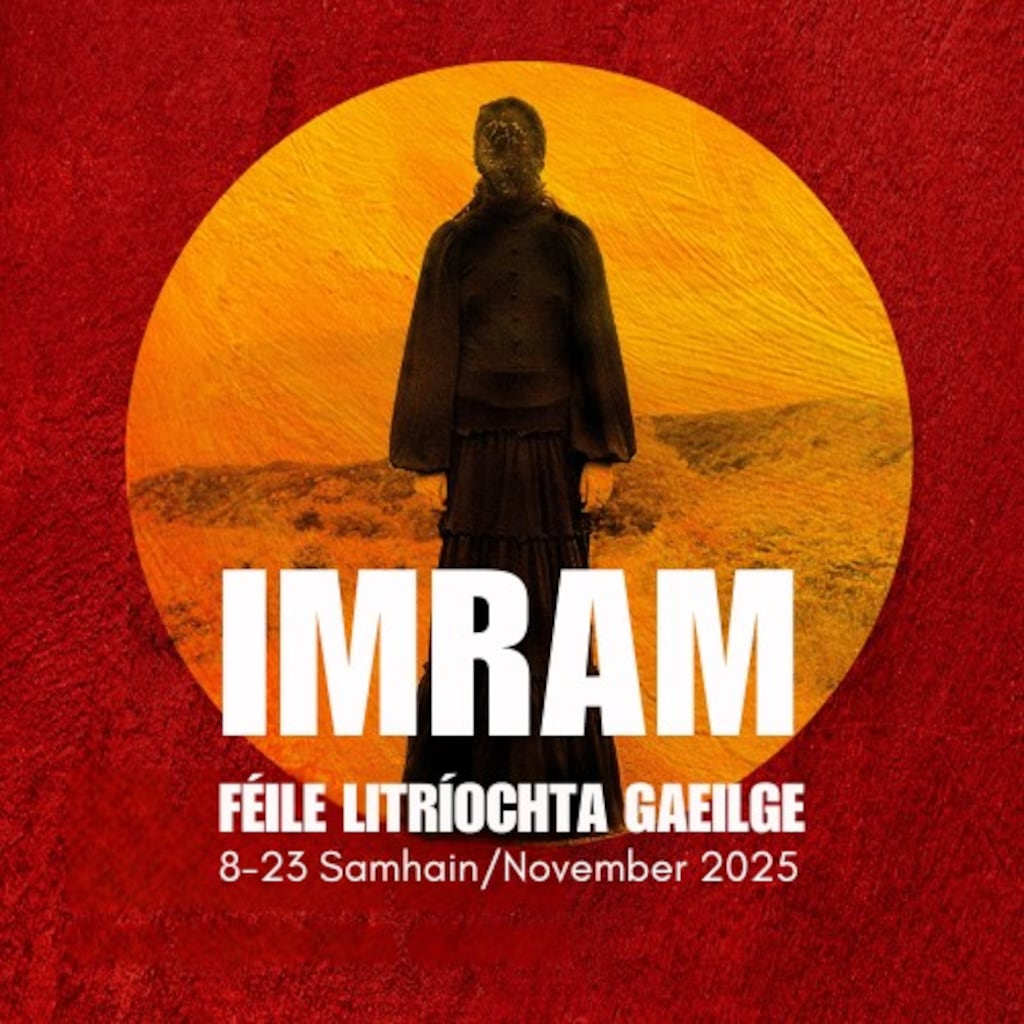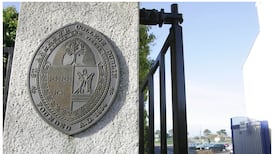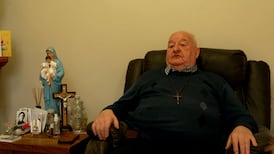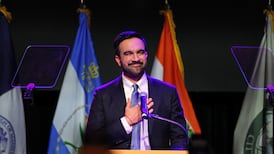‘Really important’, ‘representative of Irish culture’ – so declared young voters of President-elect Catherine Connolly’s use of and support for the Irish language. If one fact stood out in the presidential election, it was that voters in their twenties have a deep interest in Irish-language culture. Their new vision of what Irish is, a language that is alive on the streets – destroys the stereotype of it being ‘shoved down our throats’.
It’s a far cry from the days when poet Nuala Ní Dhomhnaill was told by her mother that writing in Irish was ‘mad’; or had a man sneeringly ask her ‘oh, is there a word for sex in Irish?’ at a reception in the American embassy. At times, she felt that she was seen as a ‘linguistic spectre’.
But all is changed, utterly changed. Kneecap perform in Irish to huge audiences. There is an upsurge in people not only learning Irish, but learning traditional storytelling and singing in Irish. There is a burgeoning hip-hop and spoken word poetry scene. This is represented at this year’s IMRAM Irish-language Literature Festival at Ceolta: an Hip-Hap Gaelach (The Cobblestone Bar, Thursday, November 20th) – which will feature poet Séamas Barra Ó Súilleabháin, the ‘Rí of Irish rap’. Of his work, Seaghan Mac an tSionnaigh, writing in The Irish Times, spoke of his use of ‘mellifluous Munster Irish’ fused with ‘other Irish languages such as Jailic, Hiberno-English and even Polish’. He’ll be joined by other hip-hop artists and spoken word poets such as Julie Goo, James Shannon, Ciara Ní É and Cúán de Búrca.
‘In this great future, you can’t forget your past,’ sang Bob Marley, and no living literary culture can exist without building on the work of writers down through the ages. If it is impossible to conceive of English literature without Shakespeare, then it is impossible to ignore Aogán Ó Rathaille, a titanic figure in the history of Irish poetry. He lived through a time of political upheaval in the 18th century that saw the Irish language driven to the margins.
READ MORE
Ó Rathaille’s poetry drew on vernacular speech; and more than any other poet, he developed the aisling – or vision poem – into high art. Composer and singer Lorcán Mac Mathúna has now set his poems to stunning new music, which he will sing to accompaniment from musicians Martin Tourish and Éamonn Galldubh at Gile na Gile: The Life and Music of Aogán Ó Rathaille (Smock Alley, Monday, November 17th).
Traditional storytelling still underpins much of Irish literature, and a central figure in folklore is that of the Cailleach. She is a goddess associated with the land, winter, and with the otherworld of the dead – often depicted as a veiled hag, with one eye and deathly pale skin.
Vona Groarke, newly appointed Professor of Irish Poetry, has recently published Woman of Winter, her version of ‘The Lament of the Old Woman of Beare’ – and sees her as a ‘dramatic, articulate, wounded and resistant female protagonist’. Dán na Caillí: The Hagwitch Project (Royal Irish Academy, Tuesday, November 18th) is a multi-media performance featuring poems by Laoighseach Ní Choistealbha, Dairena Ní Chinnéide and Eithne Ní Ghallchobhair; and songs from Fermanagh composer, vocalist and instrumentalist Róis, acclaimed by The Guardian as ‘an arresting new talent’.
Julie Breathnach-Banwait engages with the uncanniness of place in prose poetry charged with electrifying rhythms. Her work explores landscape and family history, taking us from the shores of Conamara to the deserts of Australia, where she lives. In Cnámha Scoilte/Split Bones (Smock Alley, Wednesday, November 19th) she will read to live music from composer Jack Talty, interwoven with sean-nós songs from Síle Denvir, and visuals by artist Kim Sharkey. In TURAS: pilgrimagetimejourney (Lexicon Library, Saturday, November 22nd), poet Rody Gorman takes us on a journey through the landscapes of Dublin, Dún Laoghaire, Wicklow and the Kingdom of Cuala in a series of tercets – three-line poems in Irish and in English.
Literature is nothing if it is not engaged with broader society. Ireland is witnessing rising racism. As a poetic response to anti-immigration sentiment, artists Caitríona Ní Mhurchú and Niall Toner Jr have created Ar an gCoigríoch (The Dot Theatre, Sunday, November 23rd), using texts from the anthology of the same title edited by Aisling Ní Dhonnachadha and Máirín Nic Eoin as a jumping-off point. These are woven with live electronic music, voices, and visuals echoing the twin themes of home and absence. In this immersive chamber piece, Caitríona and Niall will perform live on stage with singer Sharyn Ward.
Sport is part of the pulse of Irish life, and Micheál Ó Muircheartaigh was without doubt Ireland’s most gifted sports commentator – the Poet of Croke Park. Bard na Páirce (Smock Alley, Friday, November 21st) is a celebration of his life through poetry and prose from Colm Mac Gearailt, Ailbhe Ní Ghearbhuigh, Dara Ó Cinnéide and Alan Titley; new music from Colm Ó Snodaigh of Kíla; and archive film and recordings of Mícheál’s commentaries.
Phoebe Bridgers has an uncanny knack for pop songcraft. Amhráin na Gealaí/Moon songs (Smock Alley, Saturday, November 22nd) showcases her lyrics translated into Irish by poets Caitríona Ní Chléirchín and Dairena Ní Chinnéide. They’ll be performed by Belfast indie-pop artist Aoibha, of whom Hot Press has declared ‘her gripping vocals could halt anyone in their tracks’, and by Jessie Dingle, who wowed audiences with her dynamic performance at IMRAM 2024’s Taylor Swift Project. The lyrics will be projected on-screen with art from visual designer Margaret Lonergan.
Other IMRAM events this year include a round-table discussion on literary translation, chaired by Prof Michael Cronin; an interview with poet and children’s author Áine Ní Ghlinn; the Discovery Lectures, two free talks on the novel in Irish and on the literature of emigration; and a haiku writing competition for children, curated in association with Poetry Ireland.
Whatever the event, IMRAM has one guiding principle – to bring its audiences on a voyage of discovery that reveals the sheer energy and engagement of Irish-language literature. Come and join us on that voyage, it is full of wonders.
IMRAM Féile Litríochta Gaeilge/Irish-language Literature Festival takes place from November 8th – 23rd. Full programme at imram.ie
















